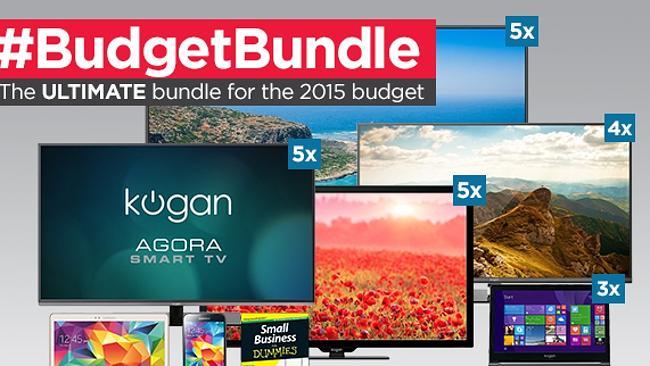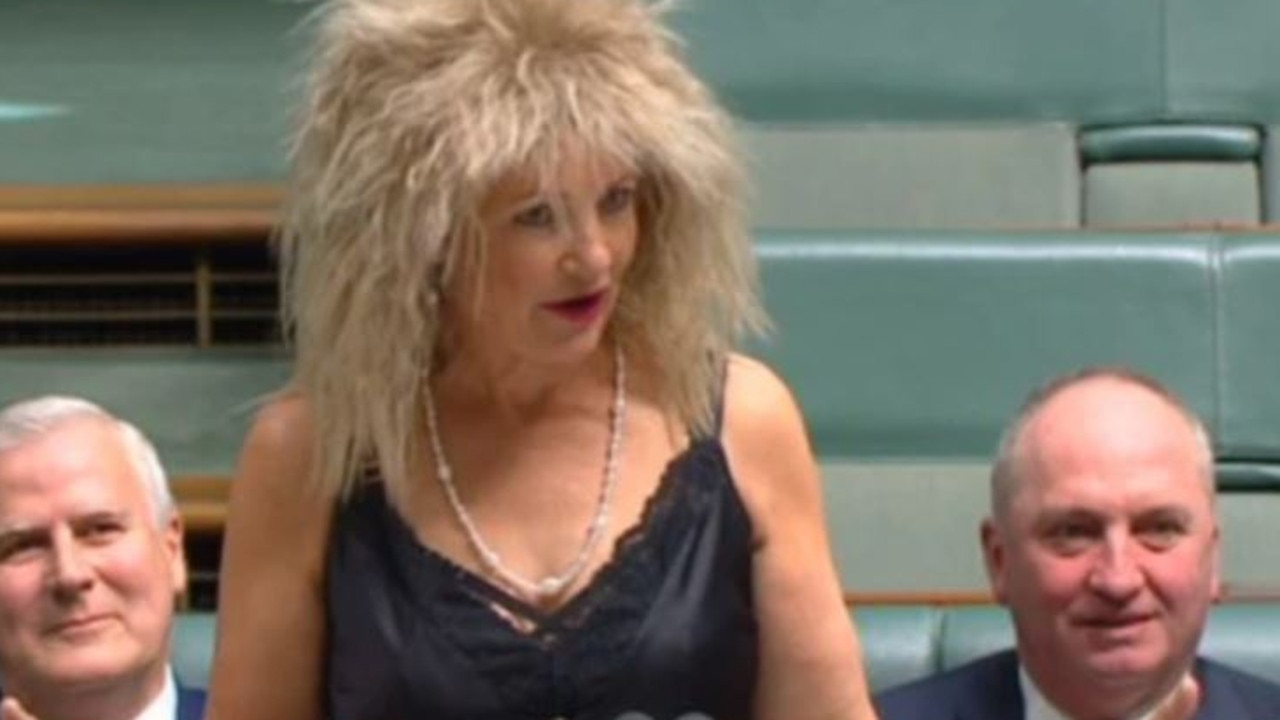Federal Budget 2015: The budget feeding frenzy has begun
RETAILERS are already rubbing their hands in anticipation as small business owners set their eyes on big-ticket purchases to claim the $20,000 tax break.

Fed Budget
Don't miss out on the headlines from Fed Budget. Followed categories will be added to My News.
THE feeding frenzy has begun.
Retailers are set to be big winners from Tuesday night’s budget announcement to allow small businesses to claim a tax deduction for the full value of assets worth up to $20,000 in a single year, rather than over five years, as had previously been the case.
Prime Minister Tony Abbott and Treasurer Joe Hockey have both dismissed concerns that the scheme will be rorted. “The tax office is well practised at ensuring people are doing what’s allowed under the rules,” Mr Abbott told reporters this morning.
Asked this morning if he was worried people would claim plasma TVs and office couches, Mr Hockey told ABC Radio: “People aren’t going to spend money on their business if it’s not going to make them a dollar.”
But online retailer Kogan is already rolling out a tongue-in-cheek ‘Ultimate Budget Bundle’ for $19,901, consisting of 19 TVs, three laptops, a tablet, a smartphone and a copy of Small Business for Dummies.
Speaking at the National Press Club today, Mr Hockey said there were already strong measures in place to ensure businesses didn’t rort tax write-offs.
“This is normal business practice. Businesses already depreciate the goods they buy, but instead of over a number of years they’ll be able to do it immediately,” he said.
“They still have to spend the money and it’s not like they’re getting 100 per cent of it back, it’s a reduction in their tax liability. It’s a bring-forward of the write-offs they would have gotten anyway to improve cashflow.”
Grant Field, chairman of accounting group MGI, said the $20,000 tax break showed the government was looking for an immediate “sugar hit” to kickstart the economy and boost confidence.
“The key will be whether small business uses this concession to purchase productive assets to help them grow their business rather than nonproductive assets,” he said.
“In dollar terms, previously an asset costing a small business $20,000 would have been able to be depreciated at 15 per cent per annum in the first year and then 30 per cent per annum subsequently, meaning that the tax deduction in year one would be only $3,000, $5,100 in year two and reducing in each subsequent year.
“Assuming a 30 per cent company tax rate, the business owner would have saved only $900 in tax in year one, $1,530 in the next year and reducing thereafter. Now, they will get a tax saving in year one of $6,000, being 30 per cent of the $20,000. This represents a cash flow saving of $5,100 in year one.
“Bear in mind that this saving applies every time a new asset is acquired for under $20,000, so if a business bought multiple assets, each costing under $20,000 but totalling say $100,000 over the course of the year, then the cash flow saving would be five times the above figure, or $25,500.”
Retail stocks boosted the overall market higher today. Quay Equities head of trading Tristan K’nell said the market had made some strong gains after initially opening flat.
Harvey Norman shares gained 21 cents, or almost five per cent, to $4.595, Woolworths’ were up almost two per cent to $28.30, Dick Smith rose 5.5 per cent to $2.195 and JB HiFi was up 2.5 per cent to $20.99.
“It was definitely a day to be a retail stock that looks likely to be the main business beneficiary of last night’s federal budget,” Mr K’nell told AAP.
Originally published as Federal Budget 2015: The budget feeding frenzy has begun


